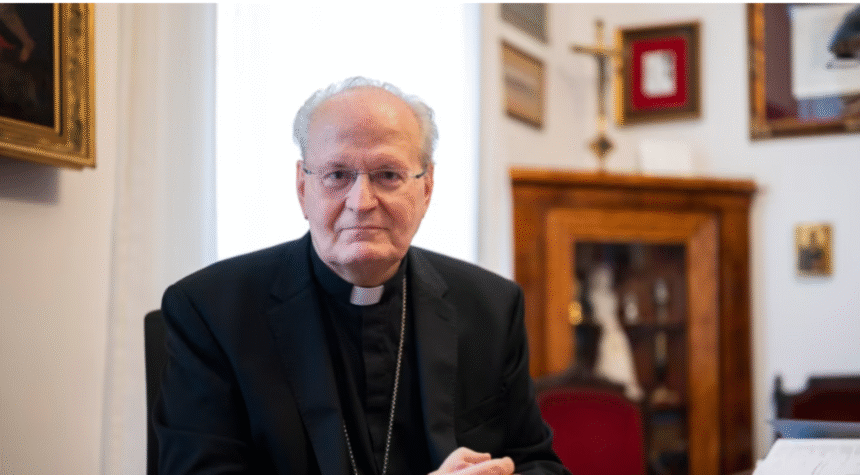Following the passing of Pope Francis on April 21, speculation has begun over who will succeed him as head of the Holy See. One of the leading candidates is Peter Erdo, the Archbishop of Esztergom-Budapest, reports Rks News.
The 72-year-old Hungarian cardinal has held significant positions within the Catholic Church over the past decades and was even considered a potential candidate during the 2013 conclave that eventually elected Pope Francis, according to Radio Free Europe/Radio Liberty.
Does Erdo stand a real chance of succeeding the Argentine pope? And perhaps even more intriguing, what is his relationship with Hungary’s increasingly authoritarian Prime Minister Viktor Orban?
Who is Peter Erdo?
Erdo is widely regarded as “papabile” — a term used for candidates with a realistic chance of being elected pope.
In theory, any baptized Catholic male can be elected pope, but since the 14th century, only cardinals have been chosen. There are currently 252 cardinals, but only 135 of them are eligible to vote, as only those under 80 years of age can participate in the conclave.
Erdo could potentially secure the two-thirds majority needed during the Papal Conclave, which is expected to begin in early May (no earlier than 16 days after the pope’s death, according to current rules).
His credentials are strong: from 2006 to 2016, he led the Council of European Bishops’ Conferences – an influential organization representing Catholic bishops across Europe.
This is significant, as European cardinals continue to make up the largest voting bloc. However, Erdo has built relationships beyond Europe as well. Through his work in the council, he established regular contacts with Church representatives from Africa, Asia, and Latin America — regions that are gaining increasing influence within the Catholic Church.
He is fluent in Italian and Latin crucial languages within Vatican hierarchy and is a recognized expert in canon law, which governs the internal workings of the Church.
One of his major achievements was bringing the International Eucharistic Congress to Budapest in 2021 — a major event that gathered clergy and faithful from around the world, including the pope himself.
This event gave Erdo a strong platform to boost his visibility and strengthen his networks both in the Vatican and in Catholic communities worldwide.
But perhaps his greatest asset is his pragmatism.
Although considered conservative for example, opposing Holy Communion for divorced Catholics Erdo cooperated with Pope Francis and avoided publicly criticizing him, unlike many figures from the traditionalist wing.
Pope Francis even included Erdo in the organization of special Vatican meetings on family issues and visited Hungary twice during his papacy.
What About Erdo’s Relationship with Viktor Orban?
What can be said about Erdo’s ties to Viktor Orban’s government and the ruling Fidesz party, which identifies itself as a defender of Judeo-Christian values and often clashes with European Union institutions?
The Hungarian state finances the Catholic Church and other recognized religious communities through support for religious education, compensation for properties confiscated by the communist regime, and the organization of major events like the Eucharistic Congress.
During the 2015 migrant crisis, Erdo compared the acceptance of migrants to aiding human trafficking a stance more in line with Orban’s rhetoric than Pope Francis’ more tolerant position.
However, he later warned against religious clashes and questioned whether a continent could truly be called “Christian,” indirectly pushing back against Orban’s anti-“Islamization” rhetoric.
Erdo seems to follow the same pragmatic approach toward the Hungarian government as he does within Church factions. He has not publicly endorsed the ruling party, though many priests in Hungary have urged their congregations to vote for Fidesz.
He has carefully chosen his battles with Budapest. He remained silent on some controversial laws but spoke out on others. For example, he did not criticize the 2018 law banning homelessness a measure at odds with Pope Francis’ teachings but he openly criticized the government’s decision to nationalize fertility clinics (IVF) a year later.
Although many Vatican observers believe the next pope might be the first from Africa or Asia, a compromise candidate to stabilize the Church after Francis’ progressive and challenging years could very well be Hungary’s Primate.







